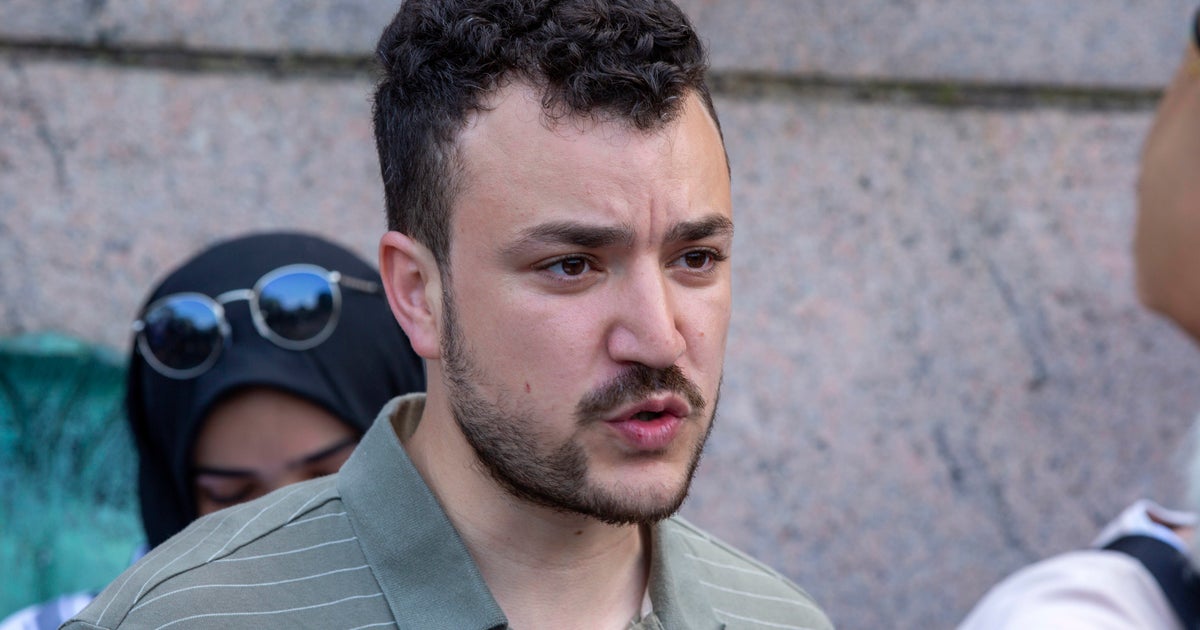Iraq issues arrest warrant for Trump over drone strike killing
Baghdad — Iraq issued a warrant for the arrest of U.S. President Donald Trump on Thursday as part of a Baghdad court's investigation into the killing of a top Iraqi paramilitary commander. Abu Mahdi al-Muhandis, the deputy head of Iraq's largely pro-Iran Hashed al-Shaabi paramilitary network, died in the same U.S. drone strike that killed storied Iranian general Qasem Soleimani at Baghdad airport on January 3 last year.
The strike on their motorcade was ordered by Mr. Trump, who later crowed that it had taken out "two (men) for the price of one."
"An arrest warrant against the outgoing President of the United States of America, Donald Trump, has been issued in accordance with the provisions of Article 406 of the Iraqi Penal Code," Iraq's Supreme Judicial Council confirmed in a statement on Thursday, adding that the investigations would continue "to identify others who participated in committing this crime, whether they are Iraqis or foreigners."
The United Nations special rapporteur for extrajudicial, summary or arbitrary executions, Agnes Callamard, has described the twin killings as "arbitrary" and "illegal."
Iran already issued a warrant for Mr. Trump's arrest in June, and asked Interpol to relay it as a so-called "red notice" to other police forces around the world. Interpol made it clear there was no intention to meet Iran's request.
Unlike adversary Iran, Iraq is a key U.S. ally in the Middle East. While the U.S. military presence in the country has diminished significantly under President Trump's orders, to around 2,500 troops at present, billions of U.S. tax dollars have been spent, and American forces have been killed, shoring the Iraqi government up to defend itself from terrorist groups, and to help it resist the influence of its neighbor to the north, Iran .
It was the court for east Baghdad that actually issued the warrant for Mr. Trump's arrest under Article 406 of Iraq's penal code, which provides for the death penalty in all cases of premeditated murder, but the Supreme Judicial Council, which runs all of Iraq's courts much like the U.S. Department of Justice, confirmed the warrant.
While the soon-to-be former U.S. president may be unlikely to visit Iraq any time soon, the order for his arrest highlights the huge resentment against U.S. policy in Iraq, and the deeply entrenched influence of Iran among Iraq's large Shiite Muslim population.
The U.S. military had braced for any possible retaliatory attacks by Iran or Iraq's pro-Iran militias, which have fired rockets at American bases many times since the strike last year, but there was no violence on the anniversary of the attack over the weekend.
Iraq's national government has at times struggled to maintain cordial relations with both its biggest global partner, Washington, and its neighbor Iran.
Even as the court issued the arrest warrant on Thursday, U.S. Ambassador to Iraq Matthew Tueller met nearby in Baghdad with President Barham Salih to discuss "the importance of reducing tensions and avoiding escalation, supporting efforts to enhance security, stability and peace in the region, and resolving the outstanding issues through dialogue," according to a statement posted on Salih's Twitter feed (below).




